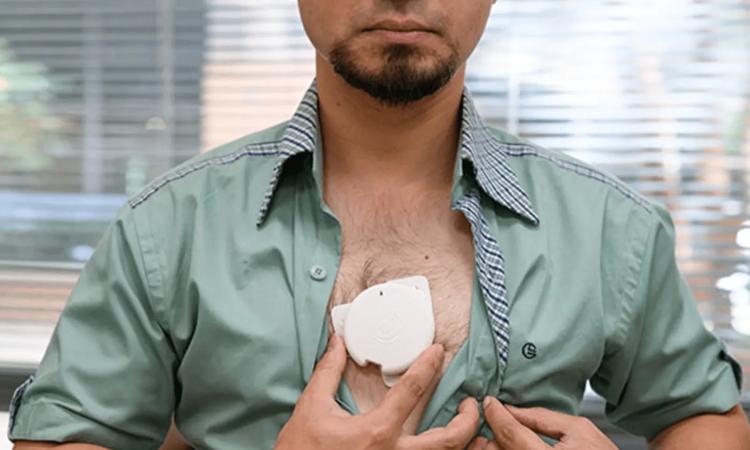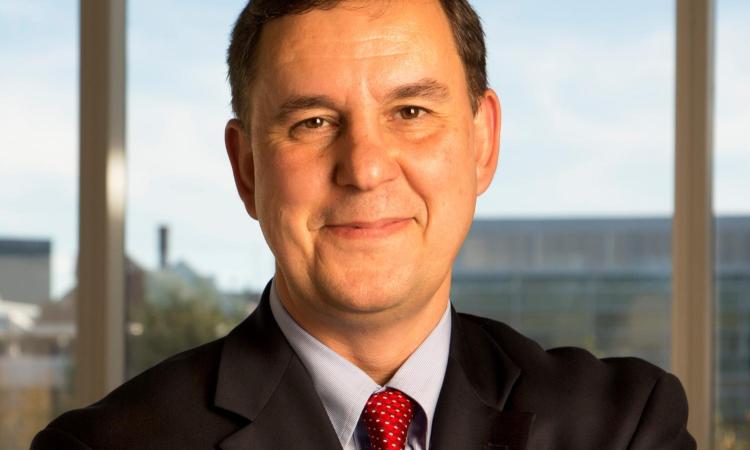The Accessible Healthcare through AI-Augmented Decisions (AHeAD) Center’s planning meeting charted a path to enhance patient experiences and outcomes through AI innovation.
(text and background only visible when logged in)
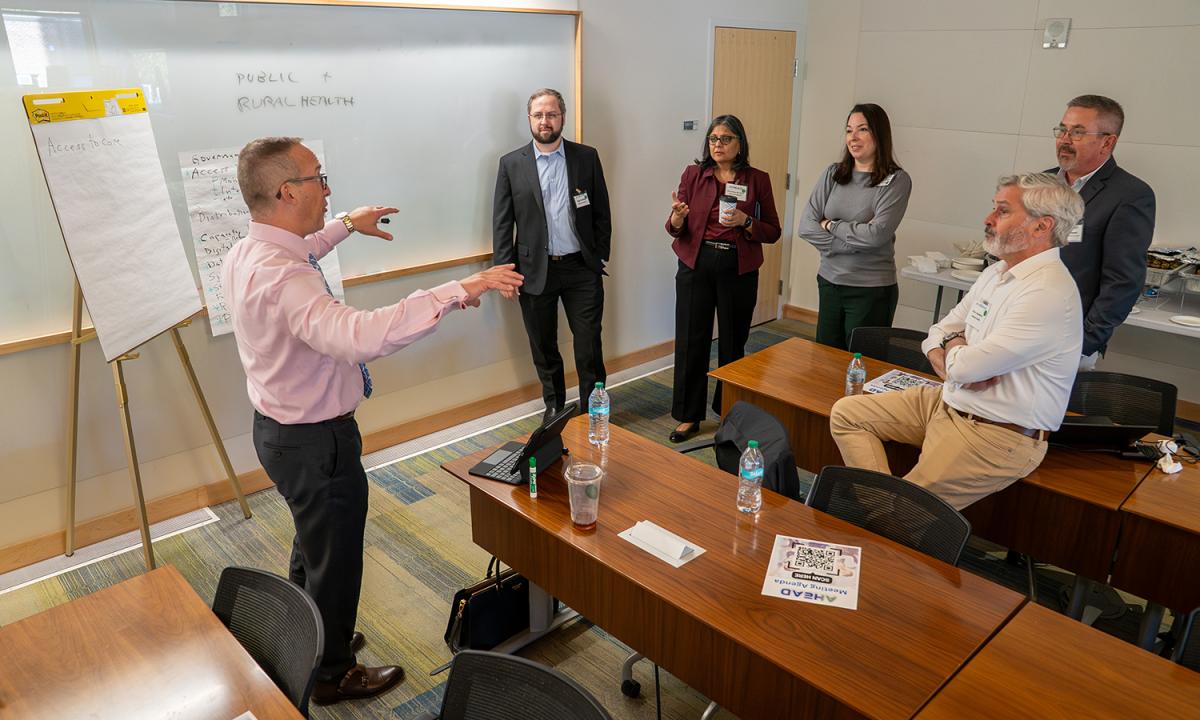
Researchers and healthcare industry representatives meeting at Georgia Tech to discuss the Accessible Healthcare through AI-Augmented Decisions (AHeAD) Center.
(text and background only visible when logged in)
What does it take to make artificial intelligence (AI) truly transform healthcare?
On November 5, researchers and industry leaders met at Georgia Tech to work on answers during the first Accessible Healthcare through AI-Augmented Decisions (AHeAD) Center planning meeting.
“Getting an AI model to work in the lab is one thing but embedding it into clinical practice without disrupting care is another,” said Ghassan AlRegib, AHeAD Center co-director and professor in the School of Electrical and Computer Engineering (ECE). “That’s why industry input is critical at this stage.”
The event drew 77 participants, including representatives from more than 25 companies, alongside faculty and students from Georgia Tech and partner universities.
The meeting marked an important step in defining the center’s mission to build trusted, collaborative AI systems that integrate seamlessly into clinical and healthcare workflows and close gaps in care, especially in rural and underserved communities as well as high-demand care environments.
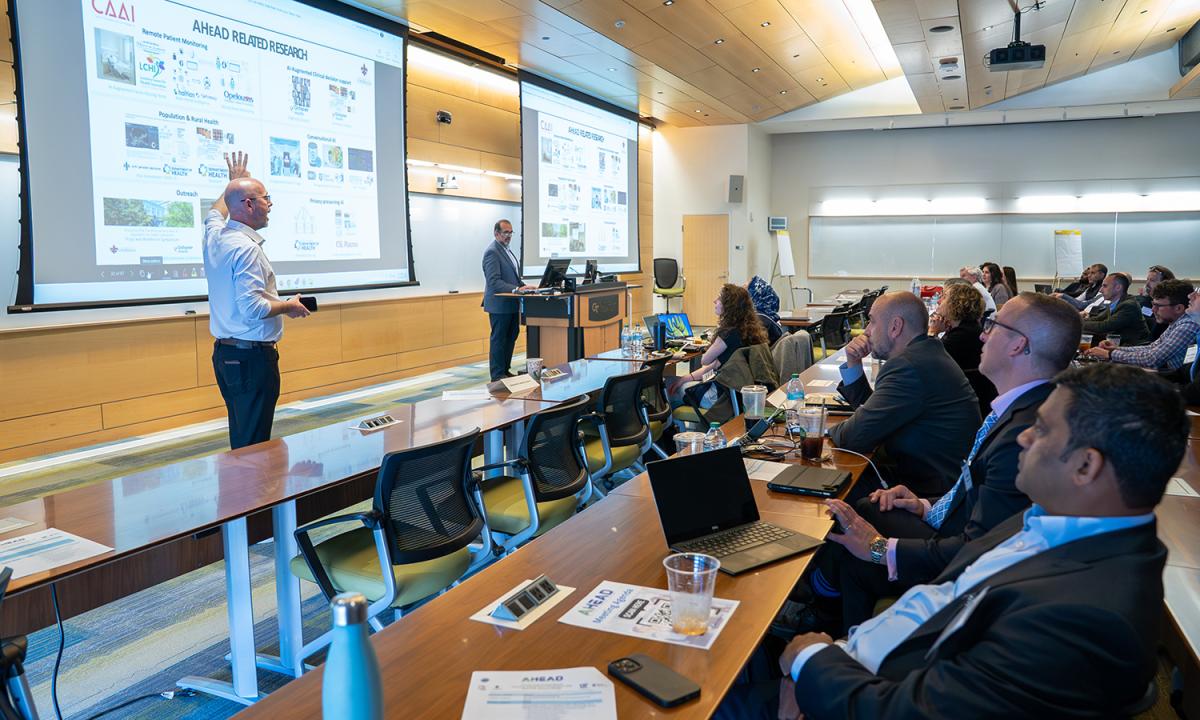
The first AHeAD Center planning meeting was held November 5 in the Krone Engineered Biosystems Building on Georgia Tech's campus.
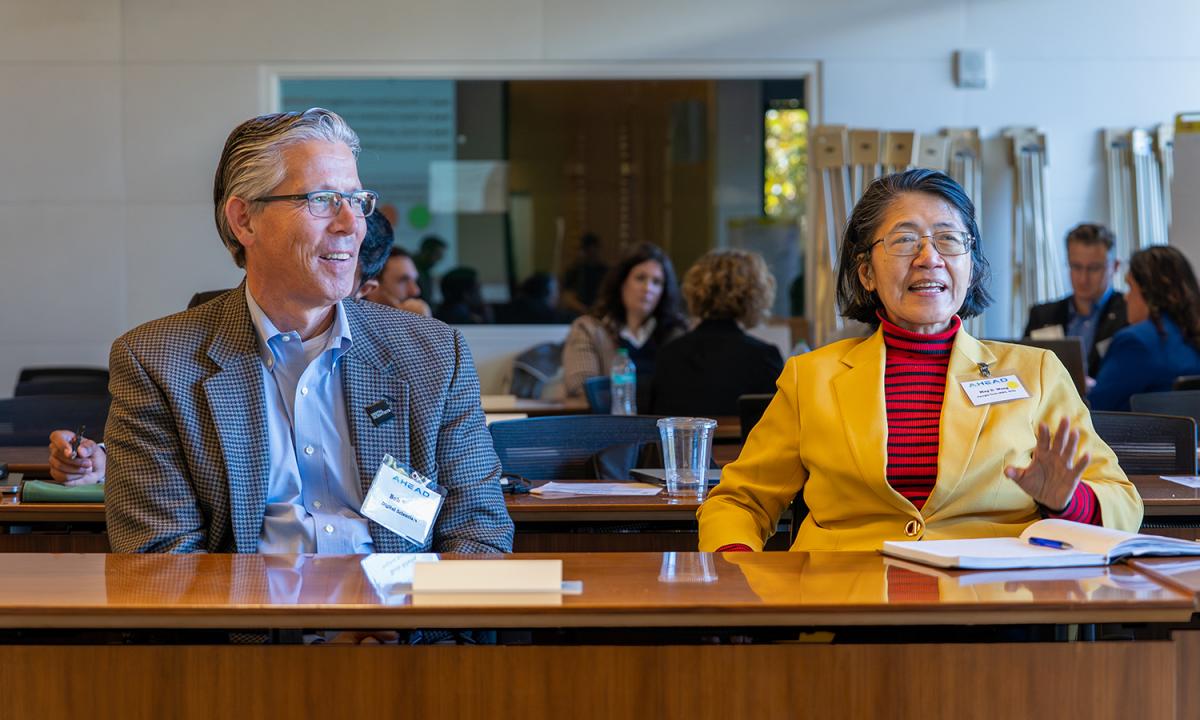
The AHeAD Center connects academic and industry leaders, including Bob Klein of Digital Scientists and Georgia Tech Professor May Wang, shown here.
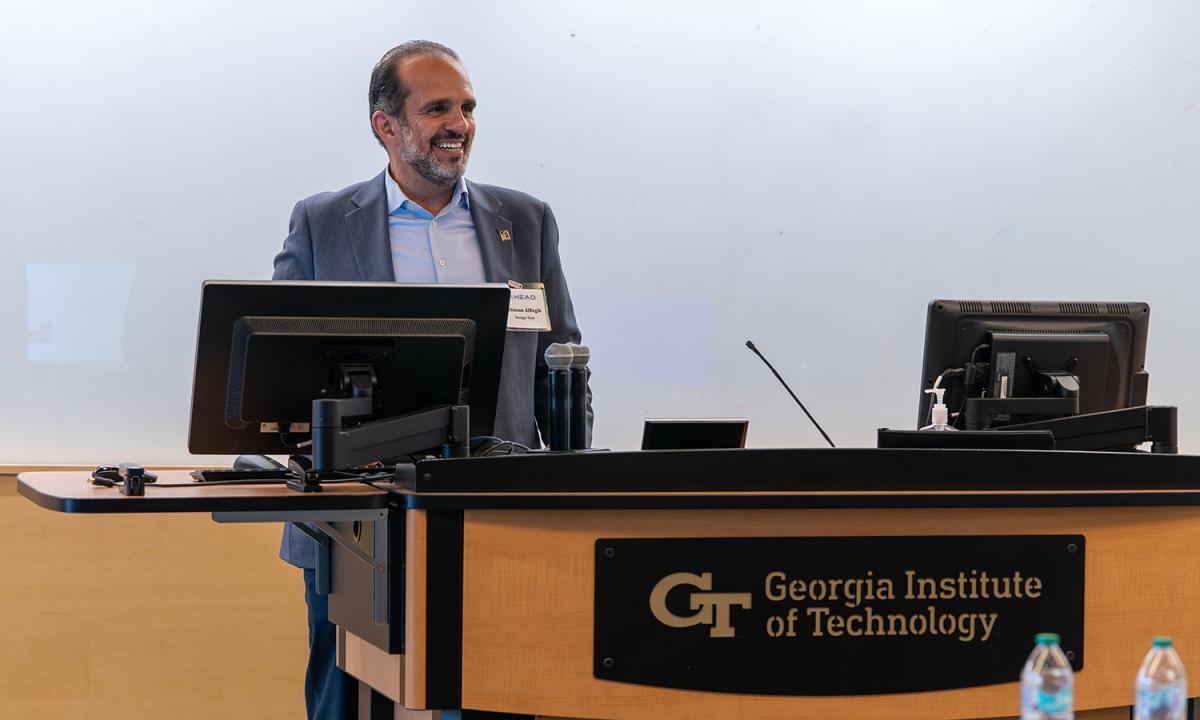
Professor Ghassan AlRegib is the Georgia Tech site lead.
The AHeAD Center has received a planning grant to be part of the National Science Foundation’s Industry-University Cooperative Research Center (IUCRC) program and includes four sites: Georgia Tech, the University of Louisiana at Lafayette (UL Lafaytette – lead site), Tulane University, and the University of Florida.
“AI holds great promise for reducing healthcare costs and improving patient care. However, healthcare organizations face significant barriers to safe implementation, including concerns about accuracy, patient safety, and seamless integration into care management workflows,” said Raju Gottumukkala, director of the AHeAD Center and associate professor at UL Lafayette.
“Accelerating responsible AI innovation in healthcare requires bringing diverse stakeholders together on a shared collaborative platform. Universities provide independence from commercial pressures and serve as neutral ground to advance the foundational research needed for safe clinical implementation.”
Throughout the day, attendees explored the center's vision and value proposition, heard success stories from past Industry-University collaborations, and engaged in faculty presentations on topics such as AI for shared decision-making, federated learning, and multi-modal data integration.
Industry leaders from Emory Healthcare, Ochsner Health, MathWorks, Amazon Web Services, Helix Labs, Piedmont Healthcare, CGI, Grady Health System, and more joined breakout sessions to identify priority challenges and opportunities for collaboration.
The stakes are high. Globally, the AI in healthcare market is projected to grow from $39 billion in 2025 to over $500 billion by 2032, according to Fortune Business Insights.
Attendees emphasized that the hardest part of bringing AI into healthcare is not the technology itself but the final steps, which involve integration challenges, regulatory hurdles, and cultural resistance
“Universities are uniquely positioned to advance AI in healthcare because we can bridge the gap between cutting-edge research and clinical application while training the next generation of interdisciplinary innovators who understand both the technology and the human context of care,” said AlRegib.
"The university's freedom to pursue fundamental questions, without immediate commercial pressure, allows us to tackle the hard problems in healthcare AI: bias, interpretability, privacy, and equitable access. By integrating AI into health and engineering education, universities like Georgia Tech, are perfectly positioned to prepare a workforce that can thoughtfully develop and deploy these tools, professionals who understand not just how AI works, but how it can be deployed.”
The day concluded with an industry workshop and a student poster session showcasing emerging research in areas such as in-home health monitoring, medical imaging, and healthcare applications in the metaverse.
Formal membership recruitment and project launches are expected in 2026. For more information, visit nsfahead.org.
(text and background only visible when logged in)
Related Content
Georgia Tech Startup Sets Sights on Transforming Heart Failure Care
CardioTag™: A Breakthrough Wearable for Continuous, Noninvasive Heart Failure Monitoring Using Seismocardiography and Machine Learning
(text and background only visible when logged in)
Ushering in a New Era of Pediatric Healthcare at Georgia Tech
Professor Stanislav Emelianov has been named co-director of the Children’s Healthcare of Atlanta Pediatric Technology Center.
(text and background only visible when logged in)
